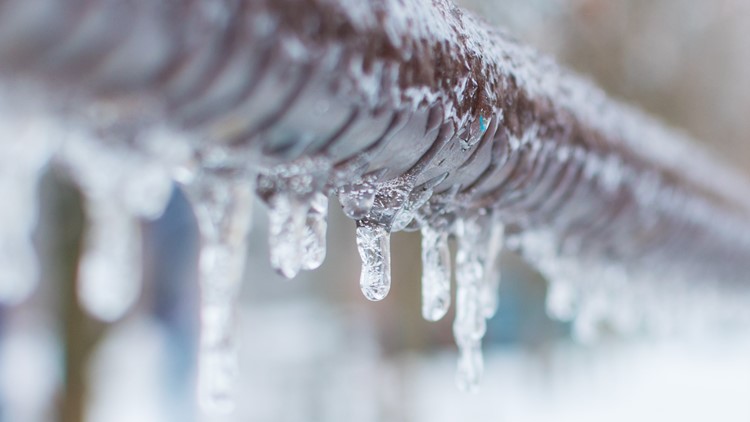Avoid Frozen Plumbing in Winter: Expert Strategies
Avoid Frozen Plumbing in Winter: Expert Strategies
Blog Article
Nearly everybody may have their own individual thinking involving How to Prevent Your Pipes From Freezing.

Cold weather can wreak havoc on your plumbing, especially by freezing pipelines. Below's how to avoid it from occurring and what to do if it does.
Intro
As temperature levels decline, the threat of icy pipelines rises, possibly bring about pricey repairs and water damages. Recognizing just how to stop icy pipes is important for property owners in cold environments.
Avoidance Tips
Protecting susceptible pipelines
Wrap pipes in insulation sleeves or use warmth tape to protect them from freezing temperature levels. Concentrate on pipelines in unheated or outside areas of the home.
Heating techniques
Keep interior rooms properly warmed, particularly locations with pipes. Open up cupboard doors to enable cozy air to distribute around pipelines under sinks.
Just how to identify frozen pipes
Search for decreased water flow from faucets, uncommon odors or sounds from pipes, and noticeable frost on exposed pipelines.
Long-Term Solutions
Architectural modifications
Consider rerouting pipelines far from outside wall surfaces or unheated areas. Include additional insulation to attic rooms, basements, and crawl spaces.
Upgrading insulation
Purchase top quality insulation for pipes, attics, and walls. Proper insulation helps maintain regular temperature levels and lowers the threat of icy pipes.
Safeguarding Outdoor Pipes
Yard pipes and outdoor taps
Separate and drain garden tubes before winter. Mount frost-proof spigots or cover outdoor taps with insulated caps.
Recognizing Frozen Pipelines
What triggers pipelines to freeze?
Pipelines freeze when revealed to temperatures listed below 32 ° F (0 ° C) for expanded periods. As water inside the pipes ices up, it broadens, putting pressure on the pipeline wall surfaces and potentially creating them to rupture.
Risks and problems
Frozen pipelines can result in supply of water disruptions, property damage, and expensive repair services. Ruptured pipes can flood homes and trigger comprehensive structural damages.
Indicators of Frozen Pipes
Recognizing frozen pipelines early can prevent them from rupturing.
What to Do If Your Pipelines Freeze
Immediate activities to take
If you think frozen pipelines, maintain taps open to ease stress as the ice thaws. Make use of a hairdryer or towels soaked in hot water to thaw pipes slowly.
Conclusion
Avoiding frozen pipes requires proactive steps and quick reactions. By understanding the causes, signs, and safety nets, home owners can shield their pipes during cold weather.
Helpful Tips to Prevent Frozen Pipes this Winter
UNDERSTANDING THE BASICS: WHY PIPES FREEZE AND WHY IT’S A PROBLEM
Water freezing inside pipes is common during the winter months, but understanding why pipes freeze, and the potential problems it can cause is crucial in preventing such incidents. This section will delve into the basics of why pipes freeze and the associated problems that may arise.
THE SCIENCE BEHIND FROZEN PIPES
When water reaches freezing temperatures, it undergoes a physical transformation and solidifies into ice. This expansion of water as it freezes is the primary reason pipes can burst. As the water inside the pipe freezes, it expands, creating immense pressure on the walls. If the pressure becomes too great, the pipe can crack or rupture, leading to leaks and water damage.
FACTORS THAT CONTRIBUTE TO PIPE FREEZING
Low Temperatures: Extremely cold weather, especially below freezing, increases the risk of pipes freezing. Uninsulated or Poorly Insulated Pipes: Pipes located in unheated areas, such as basements, crawl spaces, or attics, are more prone to freezing. Insufficient insulation or lack of insulation altogether exacerbates the problem. Exterior Wall Exposure: Pipes running along exterior walls are susceptible to freezing as they encounter colder temperatures outside. Lack of Heating or Temperature Regulation: Inadequate heating or inconsistent temperature control in your home can contribute to frozen pipes. PROBLEMS CAUSED BY FROZEN PIPES
- Pipe Bursting: As mentioned earlier, the expansion of water as it freezes can cause pipes to burst, resulting in significant water damage.
- Water Damage: When pipes burst, it can lead to flooding and water damage to your property, including walls, ceilings, flooring, and personal belongings.
- Structural Damage: Prolonged exposure to water from burst pipes can compromise the structural integrity of your home, leading to costly repairs.
- Mold and Mildew Growth: Excess moisture from water damage can create a favorable environment for mold and mildew growth, posing health risks to occupants.
- Disrupted Water Supply: Frozen pipes can also result in a complete or partial loss of water supply until the issue is resolved.
WHY CERTAIN PIPES ARE MORE PRONE TO FREEZING
- Location: Pipes located in unheated or poorly insulated areas, such as basements, crawl spaces, attics, or exterior walls, are at higher risk of freezing.
- Exterior Pipes: Outdoor pipes, such as those used for irrigation or exposed plumbing, are particularly vulnerable to freezing as they are directly exposed to the elements.
- Supply Lines: Pipes that carry water from the main water supply into your home, including the main water line, are critical to protect as freezing in these lines can affect your entire plumbing system.
- Underground Pipes: Pipes buried underground, such as those connected to sprinkler systems or outdoor faucets, can be susceptible to freezing if not properly insulated.
https://busybusy.com/blog/helpful-tips-to-prevent-frozen-pipes-this-winter/

I was shown that article on How to Prevent Your Pipes From Freezing through a friend on our other domain. Liked our piece? Please share it. Help others find it. I treasure reading our article about How to prepare your home plumbing for winter weather.
Request Estimate Report this page